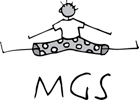written by Mike Brace
Over the last few years if you are a Yogi, CrossFitter or budding Gymnast, you’ve probably spent a greater time than the average person with your legs above your head!
Although a lot of fun, and a great challenge for strength and stability, this position isn’t quite what our anatomy was designed to do. At North Curl Curl Physio we have noticed an increasing number of neck and shoulder problems associated with training for that perfect handstand.
One very common issue we’ve seen is normally to do with overload of certain muscles at the scapula (shoulder blade). In very basic terms there are two main muscles that pull the shoulder blades towards the neck (upper trapezius and levator scapulae) that in a good handstand position are working overtime to hold up your whole bodyweight! Day to day these muscles would only need to support the weight of the upper limbs and neck.
If you push too hard or progress too quickly these muscles can get hypertonic that can eventually cause strains of the joints in the neck or nerve compression around the brachial plexus.
Now as physios you might expect us to say…just don’t do handstands! But as modern sports physios we know that just isn’t going to cut it for most people…
Our top tip (and a good one for general in life) is BE PATIENT! Build into this type of challenging exercise slowly to allow your body time to adapt and strengthen.
The second tip would be to focus on lots and lots…AND LOTS…of serratus anterior and lower trapezius strengthening (see the attached anatomy screen shot). These muscles work in the opposite direction to stabilise the shoulder blade and training them will help to keep the tone of the scapula elevators under control.

If you follow this advice and still end up in pain we can use dry needling, myofascial release and thoracic mobilisations to help reset these muscles…but as physios we really believe that we don’t want it to come to this, so the best thing is to train smart to begin with!
Photo credit: Dan Arnold and Tori Hand (Falsegrip GST Head Coaches)
